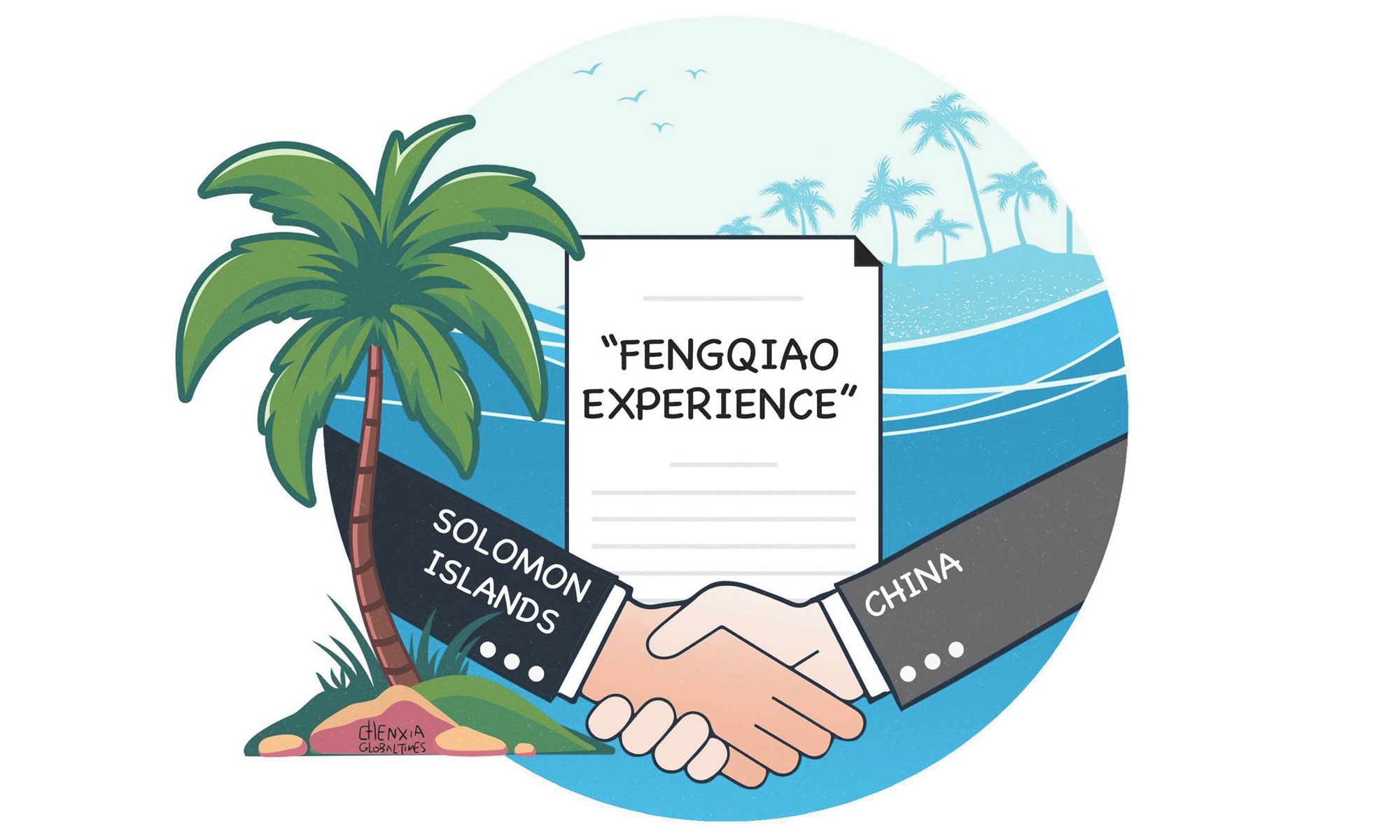
The recent pilot of China’s “Fengqiao Experience” in the Solomon Islands has sparked significant attention from Western media. Chinese police advisers and local authorities have reportedly started to introduce this uniquely Chinese model of community governance into Pacific Island communities – a move quickly labeled “village surveillance” in a detailed Reuters report recently.
The “Fengqiao Experience,” rooted in rural China since the 1960s, centers on community-led dispute mediation, proactive prevention and resolving social tensions locally before they escalate. In recent years, this approach has been updated with digital tools and urban grid management. However, the core remains: address potential hazards at their root and rely on community strength, not just top-down intervention.
The introduction of “Fengqiao” practices by the Solomon Islands is not about China “exporting” its system; rather, it’s about collaborative support for community stability and self-management. The Chinese side emphasizes time and again that each country and community has its own social fabric and cultural traditions; thus, the Solomon Islands program is designed to align with local realities. Community chiefs, elders and churches often play central roles; therefore, Chinese experts have actively sought to partner with these traditional authorities, ensuring that the initiative is grounded in local culture and receives buy-in.
“One-size-fits-all” is never the answer. China’s guiding principle in this cooperation is simple: There is no universal template for social governance. Sustainable change requires careful pilot projects, responsive adaptation, and respect for diverse traditions and feedback. Such international collaboration is consistent with international law and norms. The UN Charter clearly upholds each sovereign state’s right to choose its own development paths and partners. The China-Solomon Islands initiative was legally agreed upon by both governments, with Chinese teams offering technical support and training, while the Solomon Islands directs on-site implementation.
This South-South cooperation has become a regular feature of international relations, as developing countries increasingly look to one another for support and ideas. In the past, Australia, the US, and other Western states have also worked with Pacific nations on security and police projects – but usually from a strategic or geopolitical posture, rather than from the bottom-up, community-based reforms that the “Fengqiao” model prioritizes.
While China’s approach is motivated by a desire to help strengthen communities and secure long-term stability, critics in the West often see only a challenge to their historic influence. Western reactions to the Solomon Islands pilot reveal intense geopolitical anxiety and ideological confrontation. Although these criticisms are presented as concerns for “security” or “values,” they reflect the discomfort of former colonial powers whose exclusive influence in the Pacific is no longer assured. Their fear is less about human rights and more about the growing self-confidence and independence of developing nations, which no longer see the West as the only source of guidance or legitimacy.
China’s record in community governance speaks for itself. For decades, the country has maintained one of the world’s lowest violent crime rates, keeping social order stable while rapidly growing its economy. Chinese citizens routinely report strong feelings of public safety. The effectiveness and adaptability of community-led approaches, emphasizing early prevention and broad participation, have not only served China’s development but have become a model being observed by much of the Global South.
Pacific Island countries have the right to determine their own future. They are no one else’s backyard. As nations facing complex social and economic realities, they have every reason – and every right – to select partners and models that best suit their circumstances.
Cold war mentalities and one-size-fits-all development formulas no longer define the world. Real progress now depends on pluralism, adaptation and searching for context-appropriate solutions – even if those solutions, like the “Fengqiao Experience,” come from outside the Western tradition.
